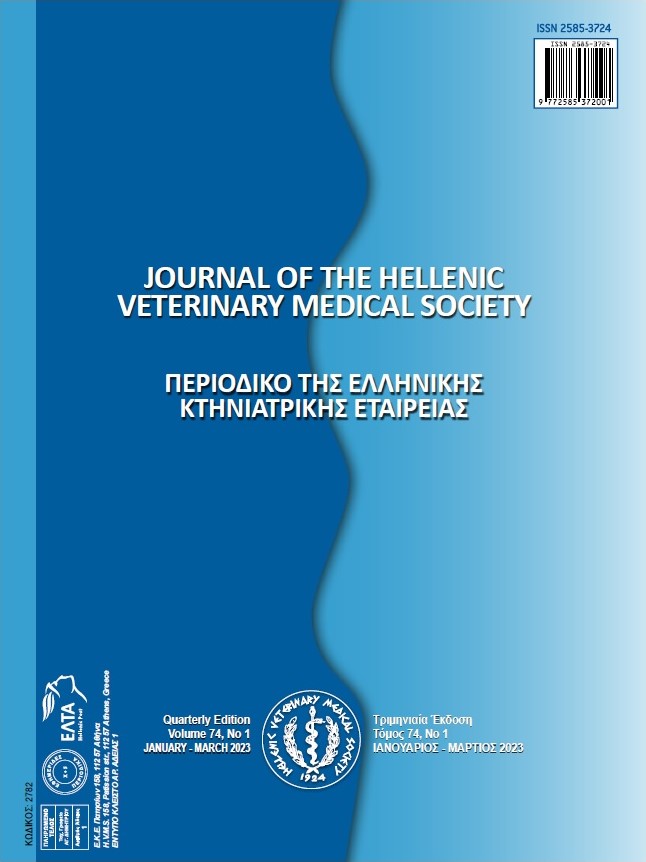Effect of levothyroxine administration on oxidative stress and cytokine levels in rats with experimental hypothyroidism

Abstract
In this study, it was aimed to determine the effects of levothyroxine (L-T4) administration on serum free triiodothyronine (fT3), free thyroxine (fT4), thyroid stimulating hormone (TSH) and serum total antioxidant capacity (TAC), serum total oxidant capacity (TOC), oxidative stress index (OSI) and superoxide dismutase (SOD) activity, liver malondialdehyde (MDA) and the effects of cytokines on tumor necrosis factor-alpha (TNF-α) and interleukin-6 (IL-6) levels in rats with experimental hypothyroidism. In the study, 48, 39-day-old, male Wistar albino rats were randomly divided into 3 groups containing 16 rats in each as control, hypothyroid and levothyroxine (L-T4) treated hypothyroid group. The rats in the control group were injected with 1 mL of saline and the rats in the hypothyroid group were injected via intraperitoneal (i.p.) route with 6-n-propyl thiouracil (PTU) at a dose of 10 mg/kg/day for 28 days. In the levothyroxine treated group, after induction of hypothyroidism 5 µg of levothyroxine diluted in 1 mL of sodium chloride (NaCl) administered via i.p. route for 15 days. At the end of the study, serum and liver samples were taken from the rats. In hypothyroidism group, serum fT3, fT4 and TAK levels as well as SOD (P<0.001) activity decreased statistically compared to the control group while serum TSH, TOC, OSI (P<0.001), liver MDA (P<0.01), TNF-α and IL-6 (P<0.001) levels increased significantly. The decreased serum fT3, fT4, TAC levels and SOD (P<0.001) activity in the hypothyroidism group increased with levothyroxine administration whereas the increased serum TSH, TOC, OSI and tissue MDA (P<0.01), TNF-α and IL-6 (P<0.001) levels were found to be decreased and approached to control levels. In conclusion, it has been shown that levothyroxine administration is effective against PTU-induced hypothyroidism in rats, inhibits lipid peroxidation and increases antioxidant status, minimizes the levels of inflammatory markers and protects against PTU-induced liver damage in rats. Because, the potential therapeutic use of levothyroxine in the treatment of hypothyroidism is thought to be appropriate.
Article Details
- Zitationsvorschlag
-
Bozbek, ÇK, & Şentürk, M. (2023). Effect of levothyroxine administration on oxidative stress and cytokine levels in rats with experimental hypothyroidism. Journal of the Hellenic Veterinary Medical Society, 74(1), 5227–5234. https://doi.org/10.12681/jhvms.28743
- Ausgabe
- Bd. 74 Nr. 1 (2023)
- Rubrik
- Research Articles

Dieses Werk steht unter der Lizenz Creative Commons Namensnennung - Nicht-kommerziell 4.0 International.
Authors who publish with this journal agree to the following terms:
· Authors retain copyright and grant the journal right of first publication with the work simultaneously licensed under a Creative Commons Attribution Non-Commercial License that allows others to share the work with an acknowledgement of the work's authorship and initial publication in this journal.
· Authors are able to enter into separate, additional contractual arrangements for the non-exclusive distribution of the journal's published version of the work (e.g. post it to an institutional repository or publish it in a book), with an acknowledgement of its initial publication in this journal.
· Authors are permitted and encouraged to post their work online (preferably in institutional repositories or on their website) prior to and during the submission process, as it can lead to productive exchanges, as well as earlier and greater citation of published work.


